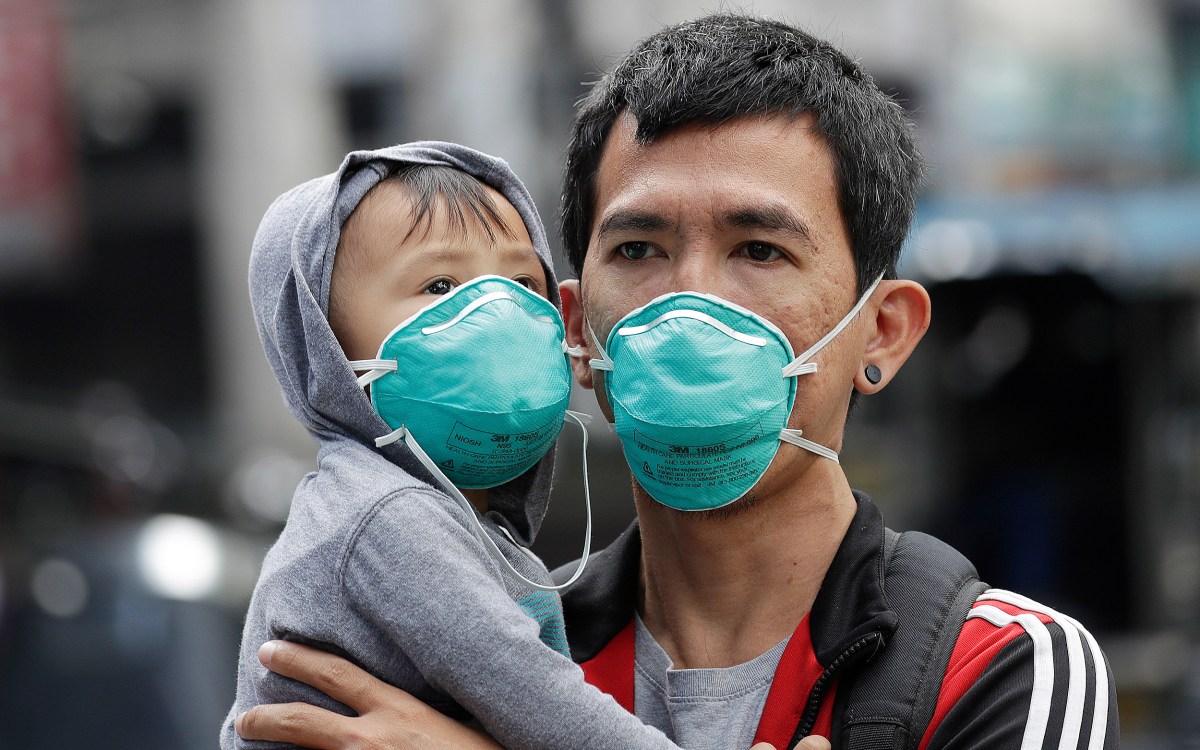
In its series of online forums, the Harvard Chan School explored “How the Discomfort of Grief Can Help Us: Recognizing and Adapting to Loss During the COVID-19 Outbreak.”
Harry Wedzinga/iStock
Relearning ways to grieve
On top of everything else, the novel coronavirus has interrupted our traditions of mourning
This is part of our Coronavirus Update series in which Harvard specialists in epidemiology, infectious disease, economics, politics, and other disciplines offer insights into what the latest developments in the COVID-19 outbreak may bring.
As the death toll of the COVID-19 pandemic grows, so does our grief — and our need to process it. But like so much upended by the coronavirus, social distancing is forcing a change to our ways of mourning. With everything from hugs to funerals now forbidden or unrecognizable, the Harvard T.H. Chan School of Public Health online forum on Wednesday focused on “How the Discomfort of Grief Can Help Us: Recognizing and Adapting to Loss During the COVID-19 Outbreak.”
“Losses are ubiquitous in a world closed down by the virus,” said Christy Denckla, a research associate in epidemiology at the Harvard Chan School. “The scope of this loss is truly global and unprecedented.”
In addition to the accumulating COVID-19 deaths, Denckla noted that the snowballing repercussions from the disappearance of jobs to the cancellation of traditional events like graduations or sporting matches compound the sense of bereavement and dislocation.
The forum, hosted by Katherine Shear, the Marion E. Kenworthy Professor of Psychiatry at Columbia University, from her home to a viewership of more than 700, was the fourth in a series addressing the emotional and psychological effects of the COVID-19 crisis. Shear said problems arise when the mechanisms of coping — processing grief and resuming a changed life — are disrupted. And as founder and director of the Center for Complicated Grief at the Columbia School of Social Work, she offered practices that clinicians, family members, and the bereaved themselves can use.
We never truly lose our grief, but we integrate it into our ongoing and productive lives. We are changed, but we resume living. When mourning is derailed, however, we are incapable of moving on.
Katherine Shear
First, she said, grief must be recognized as “a full body and mind response,” one that is complicated and erratic even under the best circumstances. “Grief naturally contains a lot of mixed thoughts and feelings,” she said. For example, we cannot help but think about what or who is lost, even as those thoughts bring us pain.
But with time, acute grief usually calms down into something manageable. “Research has shown us that resilience is the norm, rather than the exception,” said Christy Denckla, a research associate in epidemiology at the Chan School, who joined Shear at the forum along with Chan School research associate Archana Basu.
We never truly lose our grief, Shear said, but we integrate it into our ongoing and productive lives. We think of the lost person or situation even as we accept our altered circumstances. We get a new job, or we assume a chore our loved one once performed. We are changed, but we resume living.
When mourning is derailed, however, we are incapable of moving on. Mourning can be disturbed by preexisting depression or mental health issues, or excesses of such common responses as guilt, anger, or counterfactual thinking (dwelling on “if only …” scenarios). In addition, belief that one will never move on can lead to avoidance or repression of the natural feelings of sadness and loss, hindering the process.
The current crisis derailed grief. It’s natural to think “If only I hadn’t let him go to the supermarket” when a loved one falls ill, for example. The shock and lack of context — the sudden, sweeping nature of the pandemic — interfere with our natural coping skills, while the unavailability of physical contact, the hugs and shared tears, has both emotional and physiological implications, said Shear. On top of that, immediate demands, such as caring for children stuck at home, may encourage mourners to delay their grief.
All these factors, said Shear, need to be accepted with our new and changing reality. “An important thing with COVID-19 is that people may need to sideline their grief,” she said. “People need to take care of themselves and often others, such as children. It’s not essential for the best adaptive processes to happen right away, and that’s OK.”
To help the bereaved process when they can, she recommended several approaches. “Gently remind them that there is a future,” she said. Grief will never entirely disappear, but life will continue.
Next, “encourage creative ways to stay connected. We don’t really grieve well alone,” Shear said. When possible, “It is usually helpful for the person to be invited to share the story of the death.” Ask “What happened?,” and then listen.
“Lastly, we want to help people learn to live with the reminders,” she said. While it may be hard to view pictures or a loved one’s belongings at first, mementos can have lasting value when remembering is no longer so painful. “Help people feel a sense of connection to the deceased person,” Shear said. This will help the process of grieving and, ultimately, moving on.
The series will continue Wednesday at 11 a.m. with Donn Posner, a member of the American Academy of Sleep Medicine and a founding member of the Society of Behavioral Sleep Medicine. The forums are public and can be accessed via the Chan School’s website. Resources, including the slides used and a recording of the forum, are available online.







